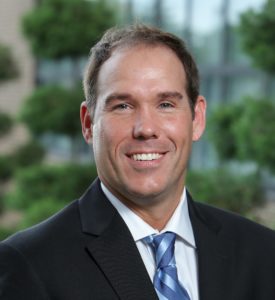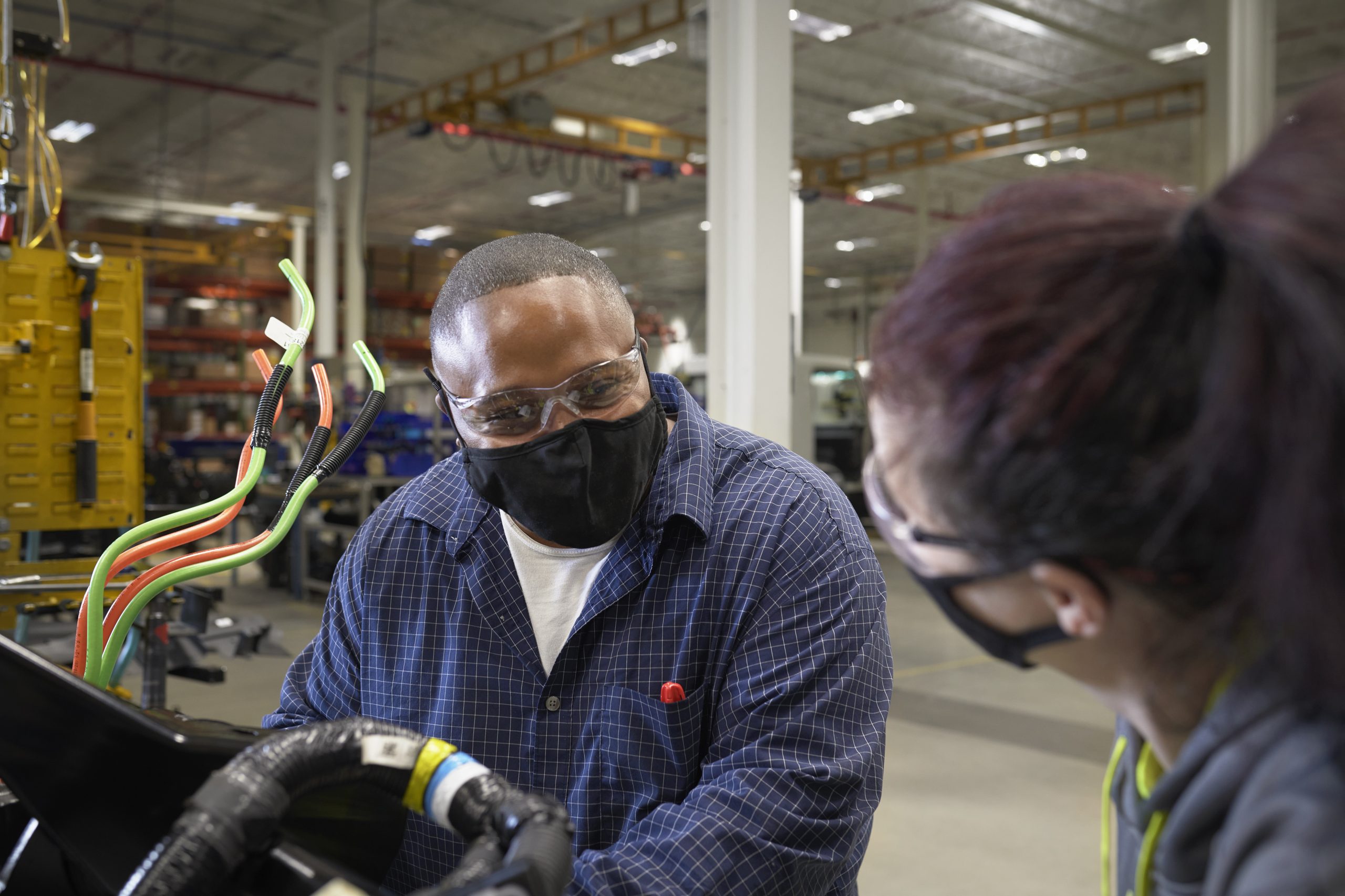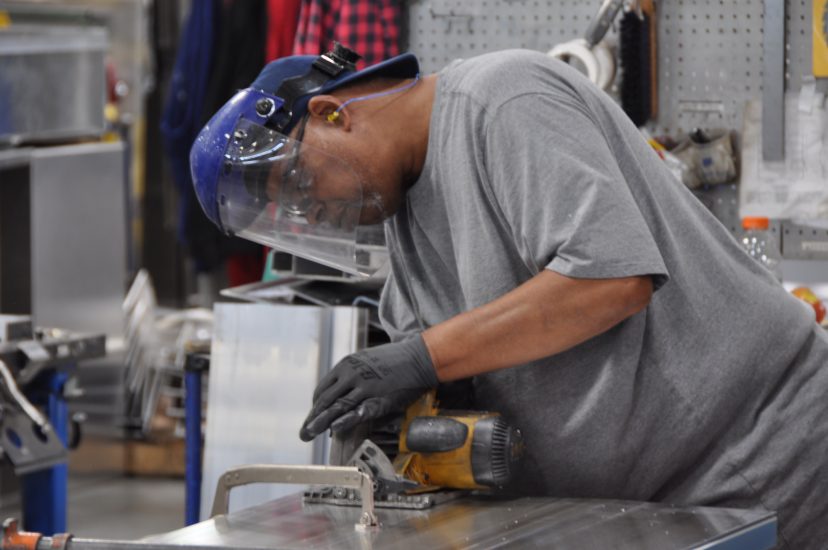Forecasters say 2021 will be a rebound year for a COVID-impacted auto and vehicle manufacturing industry, an industry that has been tied to the economic fortunes of big cities and small towns for generations.
One sign of that recovery is coming out of Charlotte, Michigan, a town of about 9,000 people just 21 miles from the state capital in Lansing. The Shyft Group is hiring hundreds of workers over the next three years at its manufacturing center there to meet demand for its new Velocity F2 walk-in commercial van.
More than 3,000 vans have already been ordered by parcel delivery companies responding to the increase in ecommerce over the past year. The first vans are scheduled to be delivered to customers this month. The demand for workers is immediate.

“We’re looking at hiring new manufacturing employees, so there’s a variety of positions that we’re going to be hiring. It’s folks in quality, materials, manufacturing, engineering, assembly, as well as supervisor and leadership positions,” Chad Heminover, President, Shyft Fleet Vehicles & Services tells WorkingNation.
Wages will be market competitive, he says, and in the range of $15.50 to $21.70 per hour. Recruitment will be largely within a 40-mile area surrounding Charlotte.
Regional Reinvestment
“We do have that long-standing history in Charlotte and the surrounding communities. We’ve served that area for more than 40 years. While we have manufacturing facilities all over the country, it was important for us to reinvest in Charlotte.
“This is kind of our declaration of our commitment to the region because our belief is that we have highly-skilled tradespeople within Michigan in that area and they’re second-to-none. And we already have an incredible workforce there and we have a lot of confidence in what they can continue to build for and the high-quality products that they build for us.”
Heminover calls the expansion a great opportunity for existing employees as well.
“This will allow some of those to continue to grow their careers. So, there’s opportunity for advancement with this addition and expansion. Not only is it we’re bringing a lot of new employees, but it’s providing a lot of opportunity for current employees that we currently have on staff.”
Commitment to Pathway Jobs
One big factor behind the reinvestment in the Charlotte facility was the collective economic package shepherded by the Lansing Economic Area Partnership (LEAP).

“We work with the decision makers at the company and our supporting partners to deliver a compelling package, and basically the message to why invest in Michigan. And that ranges from multiple facets with job creation, investment, and training,” says Dillon Rush, LEAP’s Tri-County Development and Placemaking Manager.
“We look for opportunities to align with the programs that we have here that fit with the company. This one was really exciting, just sheer job creation was outstanding.”
“You combine that with a pretty focused effort from the company to really commit to what are being called pathway jobs—higher wage jobs that lead to either vertical mobility or elsewhere—and that’s something that’s attractive to the MEDC (Michigan Economic Development Corporation), to our local partners, and of course, us.”

Capital Area Michigan Works! (CAMW!) and Lansing Community College’s (LCC) Business & Community Institute via the Michigan New Jobs Training Program will play important roles in recruiting and workforce training support. The potential value of their efforts to the company totals nearly $670,000.
“Capital Area Michigan Works, our region’s local workforce development support partner, offers a host of in-kind recruiting, training and hiring services at no cost, which is really, really useful for Shyft, since Michigan Works has an office about, I don’t know, 500 feet or so from the campus there in Charlotte. So, that’s really useful,” Rush notes.

“And, this campus is under-utilized right now until this project comes forward,” according to Keith Lambert, LEAP’s Vice President for Business Attraction. “So, it’s them utilizing space that they had, and believing in our workforce and our talent pipeline to bring on hundreds of new people and really bring this campus back to life.”
“The company has been investing in Pennsylvania and South Carolina and California, all around the country in recent years, but not Michigan. So, we felt like this was really a pivotal moment in the company’s future. Yes, they’re still headquartered in Michigan, but a lot of their investment location decisions have been elsewhere. So, we really looked at it in that competitive lens as saying, we need to help this company keep their stamp in Michigan, in Charlotte, in the Lansing region. And I think we were able to effectively do that.”
Continuing Benefits of Workforce Collaborations
Lambert believes the hiring push will have a beneficial effect, not only on the town of Charlotte, but also on the surrounding region.
“I think the way we look at this project in Charlotte and small rural towns in general, of which we have a number of in our Tri-County region, that a project of this magnitude, we all know about manufacturing and its massive impact in terms of for every one job, depending on who you talk to, it’s something like four to eight jobs created across the economy.”
“Just bringing a project like this to bear in a small rural town, it has ripple effects. And I think we’re going to see better and more opportunities for restaurants and other retailers along the main street. I think we’re going to see a lot of opportunities like that come back. So, I think that was kind of our emphasis.”
Another benefit to the Shyft expansion is that it has nothing to do with General Motors, a major contributor to the Lansing area’s economy.
“That’s a really nice thing for us because that means diversification within our manufacturing,” says Lambert. “Obviously, we want to see GM succeed, we want their suppliers to succeed. But it’s nice to have, and really prioritize, diversifying beyond just the manufacturing associated with you. It makes us more resilient. And resiliency is a huge focus for all communities, I think right now, in the face of COVID and the economic devastation that’s occurred as a result.”











